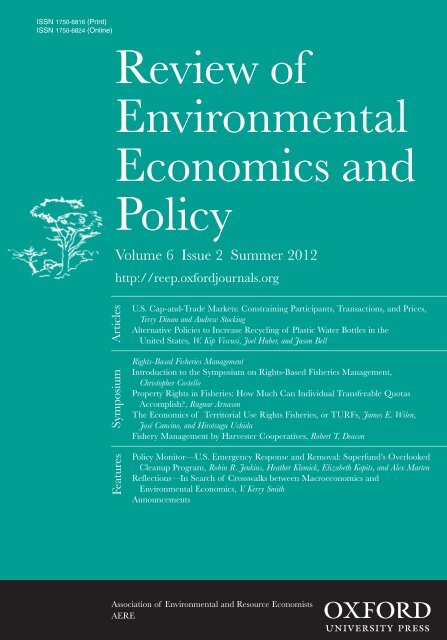自然资源评估在澳大利亚区域林业管理中的作用
IF 6.6
3区 经济学
Q1 ECONOMICS
引用次数: 0
摘要
2019-2020年澳大利亚火灾季节的野火造成33人死亡,超过10亿只动物死亡,近4000万英亩的灌木丛和3500多所房屋被毁。本分析的目的是确定可能加剧这些损失的区域林业管理薄弱环节,重点关注现有区域林业协议的经济组成部分。我通过审查RFA的制定过程,将RFA的内容与国际气候变化框架进行映射,并将RFA内容与相关的经济文献结果进行比较,来实现这一目标。我发现RFA的制定和实施依赖于森林产品的市场估价,而不包括非市场环境价值。RFA与国际气候和国内野火政策的联系很弱。此外,RFA忽视了种植园森林管理和野火缓解风险方面的道德风险。未来的RFA开发需要包括对一系列环境资源的非市场估价、对气候变化中动态野火风险的认识、对私人和联邦种植园森林野火预防责任的准确描述,以及RFA与州和联邦政策之间的明确联系,以减轻野火风险。本文章由计算机程序翻译,如有差异,请以英文原文为准。
The Role of Natural Resource Valuation in Australian Regional Forestry Management
Wildfires during the 2019–2020 Australian fire season killed 33 people and more than 1 billion animals, destroying almost 40 million acres of bushland and more than 3,500 homes. The objective of this analysis is to identify regional forestry management weaknesses that may have exacerbated these losses, focusing on economic components of existing Regional Forestry Agreements (RFAs). I accomplish this objective by reviewing the RFA development process, mapping RFA content to international climate change frameworks, and comparing RFA contents with pertinent economic literature findings. I find that RFAs’ development and implementation relied on market valuation of forest products while excluding nonmarket environmental values. The connections from RFAs to international climate and domestic wildfire policy were weak. Furthermore, RFAs disregarded moral hazard around plantation forest management and wildfire mitigation risk. Future RFA development needs to include nonmarket valuation of a suite of environmental resources, recognition of dynamic wildfire risks in the midst of climate change, precise descriptions of private and federal plantation forest wildfire prevention responsibilities, and explicit connections between RFAs and state and federal policy to mitigate wildfire risk.
求助全文
通过发布文献求助,成功后即可免费获取论文全文。
去求助
来源期刊
CiteScore
10.80
自引率
0.00%
发文量
25
期刊介绍:
The Review of Environmental Economics and Policy fills the gap between traditional academic journals and the general interest press by providing a widely accessible yet scholarly source for the latest thinking on environmental economics and related policy. The Review publishes symposia, articles, and regular features that contribute to one or more of the following goals: •to identify and synthesize lessons learned from recent and ongoing environmental economics research; •to provide economic analysis of environmental policy issues; •to promote the sharing of ideas and perspectives among the various sub-fields of environmental economics;

 求助内容:
求助内容: 应助结果提醒方式:
应助结果提醒方式:


